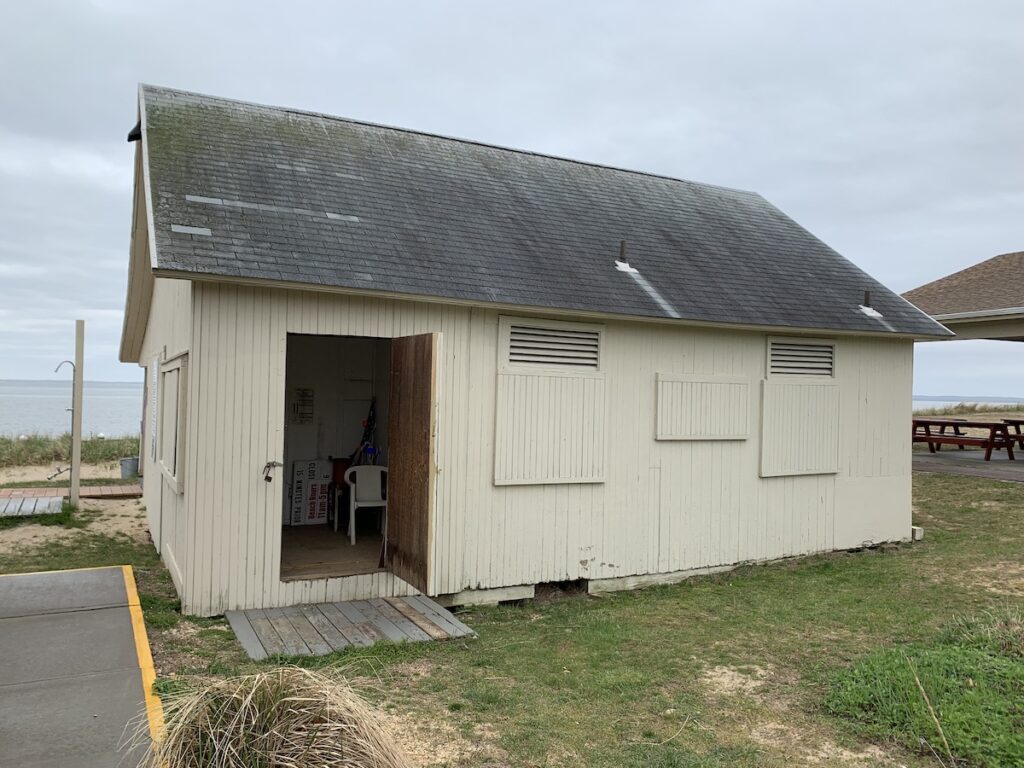Southold Town may further limit beach capacity this summer

Crowds flocking to area beaches to beat the heat have forced Southold officials to begin reconsidering capacity limits in place due to the COVID-19 pandemic.
Current state guidelines mandate that beach attendance be reduced by 50%. Though some larger county and state-run beaches have attained that by slashing parking in half, town supervisor Scott Russell said that isn’t feasible for Southold.
“There is no maximum capacity number to base it on,” he said Tuesday. As a result, beach attendants have been directed to survey the beachfront periodically, looking for adequate spacing of 10 feet between groups on the beach. “When the crowd is too large to accommodate that, they restrict access,” Mr. Russell said.
In addition, to save capacity at local beaches, the town is requiring beachgoers to show proof of residency to an attendant before entering.
Of the six bathing beaches in town, recreation department supervisor Janet Douglass said the problem is most apparent at New Suffolk Beach.
“It’s the only one we’ve had to close consistently during the pandemic due to hitting maximum density,” she said during a Town Board work session Tuesday. “We’re hitting that regularly.”
Attempting to enforce capacity guidelines has led to some aggressive encounters between teenage beach attendants and beachgoers.
“They’re kids,” Ms. Douglass said, citing recent incidents of harassment faced by the seasonal employees.
This week’s police report log featured one incident where officers were called to de-escalate a situation at Breakwater Beach in Mattituck as a 19-year-old beach attendant questioned a visitor’s town residency status Sunday.
Officials agreed the beach attendants should communicate with their managers right away if those situations turn confrontational and if necessary, call police or TCOs to handle the situation. “People need to know there’s consequences to their behavior,” Mr. Russell said. Council members Bob Ghosio and Sarah Nappa also said it was unfair to put those decisions on kids.
Setting a hard capacity number, Ms. Douglass said, would eliminate some of those arguments.
Other beaches operated by independent park districts have implemented their own capacity guidelines that are generally based on the numbers in place for designated swimming areas. But Mr. Russell said those guidelines are easier to enforce at park district beaches, which already restrict usage to district residents.
“They can create a more conservative number than we can without impacting as many people as we do,” he said.
Ms. Douglass recommended handheld tally counters for each of the beach attendants and lifeguards at New Suffolk as a way to monitor how many people are at the beach, as well as establishing a firm number as maximum capacity. Once they reach that number, she said, they can begin to turn people away.
A series of mitigation measures were discussed, including sealing off some arterial entrances to the beach that are frequently used. The idea of using a ‘beach badge’ system was also floated, but Ms. Douglass said they can be easily lost and would have to be properly sanitized often due to coronavirus concerns.
Instead, a waterproof stamp system could be implemented as people enter the beach.
Implementing a set capacity number, securing the beach perimeter and increased police presence, Ms. Douglass said, would be a “huge fix” to the current situation.








